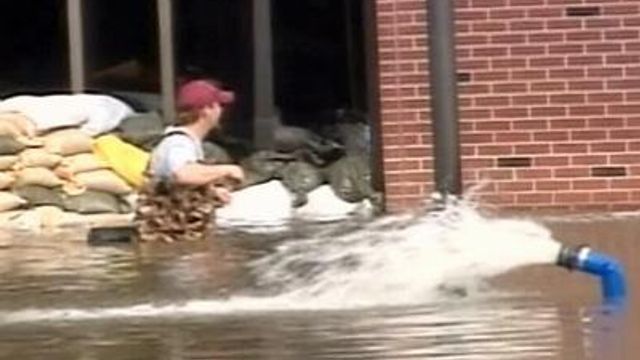State health officials offer expertise to Iowa flooding victims
People in Iowa are still trying to recover from devastating flooding. A North Carolina public health strike team returned from Iowa Thursday, having offered one of the most important elements of any disaster relief effort: quickly collecting information about what's needed.
Posted — Updated“Iowa asked us to come up because we developed (a) capacity to gather ... information very quickly using geographic information systems software and hand-held computers,” said Will Service, who works for the North Carolina Division of Public Health.
“We have so many different communication systems. We could use radios, cell phones, runners if we need to. So, there are so many different components of it. And of course, the GPS hand-held. Those units are amazing,” said Kevin Madsen, another member of Public Health team.
They used some of the most advanced equipment available, at a time when practically nothing else worked.
“One thing we can learn from this is ... how important community support is in getting through these types of things," Ramsey said.
Storms erupted again Wednesday afternoon and continued into Thursday morning in Iowa. In central Iowa, 5 inches of rain was reported in Polk City, near Des Moines, while Ottumwa, in the southeast part of the state, received over 2 inches of rain in about 30 minutes.
The National Weather Service said that rivers in southeastern Iowa are still in the major flood category and that any more rain, even an inch, could cause flash flooding. The same goes for the Cedar Rapids and Iowa City areas, which suffered major flooding, Russell said.
The North Carolina Public Health Strike Team has done this kind of work before, in Florida after Hurricane Wilma and in Mississippi after Hurricane Katrina.
• Credits
Copyright 2024 by WRAL.com and the Associated Press. All rights reserved. This material may not be published, broadcast, rewritten or redistributed.





